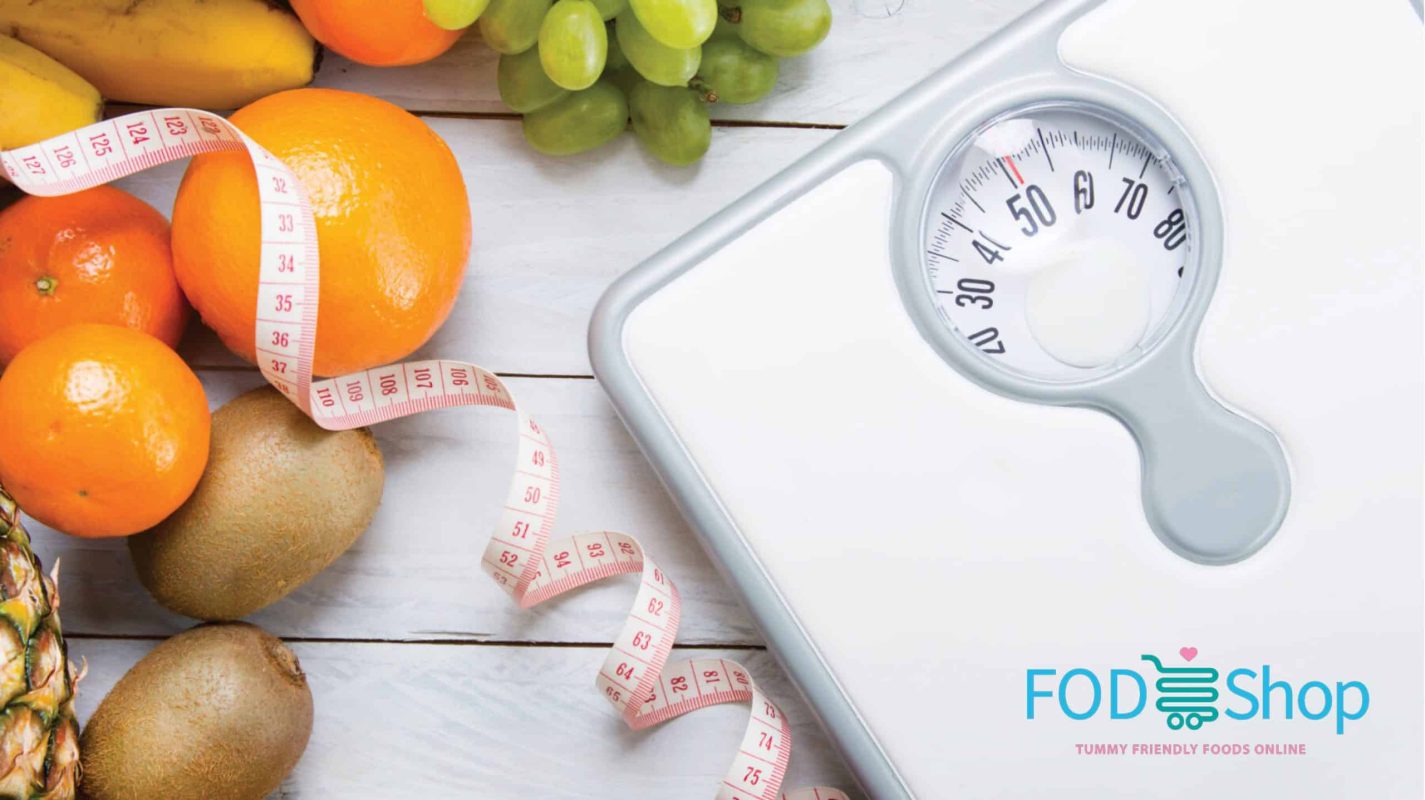Free delivery on orders $350+
Free delivery on orders $350+
Connect With Us

Irritable Bowel Syndrome (IBS) is a functional gastrointestinal disorder with symptoms of abdominal pain, flatulence, bloating, diarrhoea, and constipation that significantly affect quality of life. There are no known causes of IBS however, changes in the microbiome, heightened gut sensitivity, and chemical imbalances may be responsible.
There is no cure for IBS however, symptoms can be managed by following a low FODMAP diet. FODMAP stands for fermented oligosaccharides, disaccharides, monosaccharides, and polyols. Foods including FODMAPs are often a trigger for IBS symptoms and by limiting these, we can minimise episodes. However, with many foods high in FODMAPs including fruits, vegetables, grains, and dairy, there are concerns that limiting these foods may result in weight loss, and in some cases, gain.
If a low FODMAP diet is poorly followed, there can be concerns for weight gain. Some people will altogether eliminate whole food groups that are essential to our health, such as whole grains, vegetables, and fruits, just to prevent their symptoms. Opting for foods that are energy dense and nutrient poor as a replacement may cause weight gain and other concerns like low fibre and high refined sugar intake.
There are plenty of whole grains, vegetables, and fruits that can be enjoyed on a low FODMAP diet at an appropriate serving size. Below are some examples of low FODMAP alternatives that are safe by serving size according to the Monash University Low FODMAP App.
Individuals with IBS can also struggle with anxiety around physical activity and socials situations with the suddenness of symptoms. The stress of having to urgently use the bathroom may deter individuals from leaving the house, creating less opportunity for physical activity. Low intensity exercises, like yoga, walking, and Pilates, are known to be great ways to improve gut mobility and maintain a healthy weight without triggering symptoms.
IBS can also go the other way, with many individuals struggling with weight loss following a low FODMAP diet. Anxiety around eating is common and to prevent symptoms from occurring, individuals sometimes skip meals, limit food, or follow a too restrictive diet.
The list above includes great options for low FODMAP alternatives however, it is also important to keep protein intake high to prevent weight loss. Thankfully, foods high in protein are often low FODMAP, like fish and seafood, lean, unprocessed meats, and firm tofu.
Try to eat smaller, frequent meals rather than larger meals that will lessen the chance of symptoms but provide an adequate caloric intake. Low FODMAP dressings like mayonnaise, cheese like cheddar, olive oil, nuts, and starchy vegetables are good options for a higher caloric intake.
If you are new to the low FODMAP diet, it is essential to seek help. Visit your General Practitioner or Accredited Practising Dietitian to get help on how to follow a low FODMAP diet without putting yourself at risk of unhealthy weight gain or loss.
Remember that there are more foods than just those within the list above that are low FODMAP by serving size and will provide you with plenty of healthy nutrients to maintain your weight and health. For more information on low FODMAP foods by serving size, check out the Monash University Low FODMAP App.
Hamaguchi T, Tayama J, Suzuki M, Nakaya N, Takizawa H, et al. (2020) The effects of locomotor activity on gastrointestinal symptoms of irritable bowel syndrome among younger people: An observational study. PLOS ONE 15(5): e0234089. https://doi.org/10.1371/journal.pone.0234089
Harer KN. Irritable Bowel Syndrome, Disordered Eating, and Eating Disorders. Gastroenterol Hepatol (N Y). 2019 May;15(5):280-282. PMID: 31360143; PMCID: PMC6589841.
Kopczyńska M, Mokros Ł, Pietras T, Małecka-Panas E. Quality of life and depression in patients with irritable bowel syndrome. Prz Gastroenterol. 2018;13(2):102-108. doi: 10.5114/pg.2018.75819. Epub 2018 May 16. PMID: 30002768; PMCID: PMC6040097.
Monash University Low FODMAP App https://www.monashfodmap.com/ibs-central/i-have-ibs/get-the-app/
Share this post:
Tag @flavourcreations with your shots and you could be featured on our page!
Customer Help
Inspiration
Connect
Other Flavour Websites
Stay Connected
Subscribe to receive recipe inspiration, blogs, new product launches, and more straight to your inbox.
Connect With Us
Customer Help
Online Store
Healthcare Food Service
Inspiration
Other Flavour Websites
Connect With Us